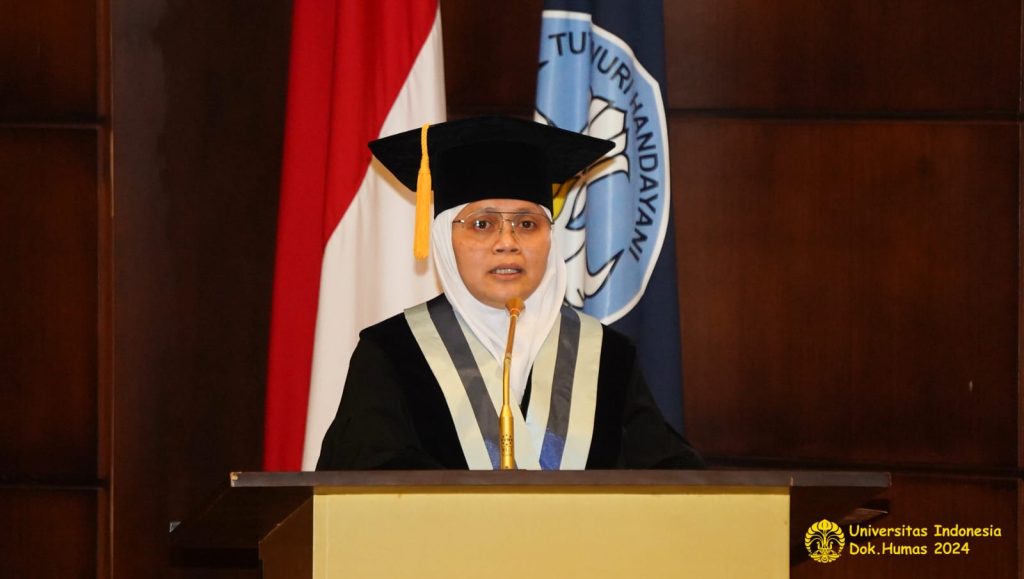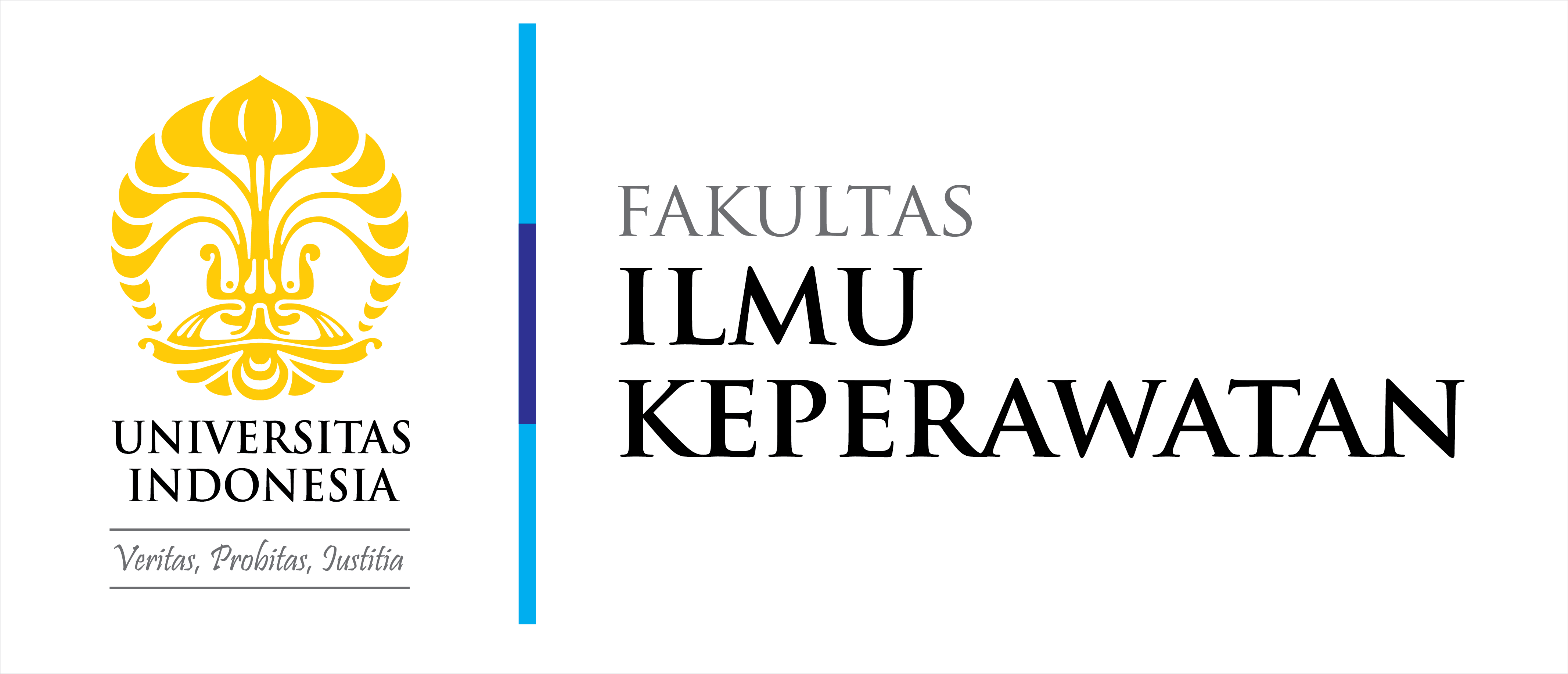
Depok, 12 December 2024 - Universitas Indonesia (UI) inaugurated Prof. Dr Mustikasari, S.Kp., M.A.R.S., as a Professor in the field of Mental Nursing, Faculty of Nursing Science (FIK) at Balai Sidang, UI Depok Campus, on Wednesday (11/12). At the inauguration led by UI Rector Prof. Dr. Ir. Heri Hermansyah, S.T., M.Eng., IPU, Prof. Mustikasari delivered her inaugural speech entitled ‘Nurses’ Resilience in Facing Psychosocial Trauma in Disaster Conditions’ and became UI's 40th professor to be inaugurated in 2024.
In his speech he explained that a disaster is a very complex event, involving many dimensions of human life, not only physical, but also psychological, social and spiritual. Despite its simplicity, the word ‘disaster’ can have a very deep meaning, depending on the experience and perspective of the individual experiencing it. Prof Mustikasari said that for people who have never experienced a disaster directly, the word is commonplace. However, for those who have felt the impact, disaster can have a huge impact, affecting their emotions, mental state and social relationships.
He further said that psychological reactions are often experienced, such as stress, trauma, anxiety, and even difficulties in living daily life after a disaster. Disasters not only damage the physical or environmental environment, but also leave deep traces in the psychological, social and spiritual dimensions of each individual who experiences them. For this reason, disaster management consists of several stages, and one of the most important aspects is the fulfillment of basic needs and post-disaster reconstruction. In this case, health services play a crucial role, and nurses are one of the main resources in the health system.
‘Nurses are at the forefront of service delivery, including in disaster conditions. The competence of nurses on duty in areas experiencing disasters must be able to work quickly, efficiently and effectively. Nurses are always present and play an important role in disaster situations,’ said Prof Mustikasari. She added that the role of nurses in disaster situations is not only limited to providing physical care, but also in supporting the psychosocial aspects of disaster victims. They often interact directly with affected communities, provide emotional support, and help them in the recovery process. Nurses play a very important role in every stage of disaster management, both during disaster events (emergency response), the recovery period, and reconstruction, to ensure that the health needs of the community can be met optimally.
In disaster conditions, nurses are not only tasked with providing health services, but are also often positioned as disaster survivors. This is especially true for nurses who work and live in disaster-affected areas. Although they are also personally affected, nurses are still required to provide health services professionally, in accordance with the Nurse Code of Ethics.
However, Prof Mustikasari said that actually in disaster conditions, survivor nurses experience physical and psychological fatigue due to the accumulation of fear, anxiety, and unresolved losses. However, even in this stressful condition, nurses must continue to serve people who need help, often without paying attention to what they are feeling. If this goes on for too long without support, nurses can experience psychosocial trauma, which risks affecting their mental health.
Meanwhile, in reality, many nurses have shown remarkable resilience in the face of these challenges. This resilience is reflected in their ability to adapt well to the various risks and problems that arise during disasters. Finally, it encourages nurses to make psychosocial adaptations. This adaptation is a process in which individuals try to make adjustments to the psychosocial changes that occur to them, either due to disaster events or other changes experienced.
Seeing the important role of nurses and also the demand for their resilience in carrying out professional duties in disaster conditions, Prof Mustikasari said that it is appropriate for the government and all relevant parties to work together to increase the capacity of Indonesian nurses, especially in disaster management. This involves not only training and developing technical competencies, but also supporting the mental health and social welfare of nurses. For this reason, it is important for the government and related institutions to provide specialised training for nurses who will serve in disaster-prone areas, so that they are prepared to deal with all emergencies more effectively and efficiently. In addition, improving the welfare of nurses, from better wages to the provision of health facilities and psychosocial support, should be a priority. Improving the capacity and welfare of Indonesian nurses will create a health workforce that is not only competent, but also highly resilient, ready to provide the best services
for disaster-affected communities.
Prof Mustikasari, who is familiarly called Titi, has researched and written a lot about mental nursing in disasters. Some of her scientific works have been published in reputable journals and have become resource persons in disaster seminars, as well as being involved in disaster management efforts in various regions in Indonesia. Before being inaugurated as a professor, Prof Mustikasari underwent her bachelor's to doctoral education at UI. In 1996, she completed her education at FoN UI. Then, she completed her master's programme at the Faculty of Public Health UI in 2003. Then she returned to FoN and successfully obtained her Doctor of Nursing Science degree in 2013. Also present at her inauguration were Chairperson of the Central Executive Board of the Indonesian National Nurses Association (DPP PPNI) Dr Harif Fadhillah, SKp, SH, MH, M.Kep; Treasurer of the Central Executive Board of the Indonesian National Nurses Association (DPP PPNI) Ners. Aprisunadi, S.Kep., M.Kep., Sp.Kep.MB, MAB; and Principal Secretary of Basarnas Dr Abdul Haris Achadi, SH, DES.

Gedung A Lantai 2, Rumpun Ilmu Kesehatan (RIK), Kampus UI Depok,
Jl. Prof. Dr. Bahder Djohan, Kampus UI Depok, Pondok Cina, Kecamatan Beji, Kota Depok, Jawa Barat 16424, Indonesia.
Jl. Prof. DR. Sudjono D. Pusponegoro, Kampus UI Depok, Pondok Cina, Kecamatan Beji, Kota Depok,
Jawa Barat 16424, Indonesia.